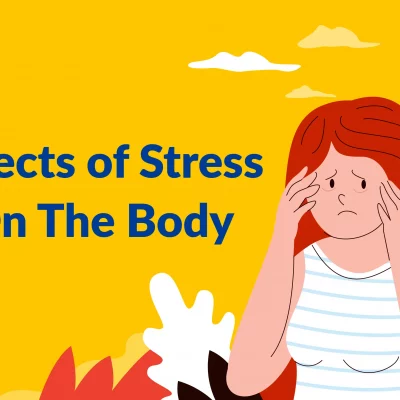How to Care for Your Mental Health at Uni
Table of Contents
With the pressure to succeed, keep up social appearances, and figure out student debt, university is an increasingly stressful experience. One out of four students struggle with mental health issues globally, making it all the more important to start a dialogue around mental health today. While there are many ways to check in with yourself and make sure you’re doing okay, the first step is to remind yourself that you’re not alone.
1. What is mental health?
Mental health is the state of your emotional and psychological well-being. It’s just as important as your physical fitness and shapes the quality of your life. University can be a particularly challenging time for your mental health, especially if you are living away from home for the first time.
2. Symptoms of Poor Mental Health
Whether you suspect your mental health is at risk, or there is simply room for improvement, it is advisable to seek a professional diagnosis from a General Practitioner (GP). That being said, there are a few common symptoms that may help you give your mental health the attention it deserves.
(i) Anxiety and/or panic attacks: A panic attack usually comes with an increased heart rate, excessive sweating, blurred vision, and shortness of breath.
(ii) Eating disorder: An eating disorder can manifest in several ways. You could be binge-eating or losing your appetite for no real reason, or even courting negative thoughts about your body and diet.
(iii) Sleep disorder: If you find yourself unable to sleep for nights on end, or even sleeping excessively to shut out the world, you may have a stress-induced sleeping disorder.
(iv) Mood swings: These occur when you swing between periods of intense joy and crushing despair.
(v) Self-harm: If you’re prone to physically hurting yourself as a means to cope with emotional distress, or have had suicidal thoughts, your mental health is at risk.
This is by no means a conclusive list of symptoms, and yours may be far more subtle. Always consult a mental health professional in case of doubts.
3. How to Ask for Help
There are several ways to seek help for your mental health on campus. Your university will either have college welfare officers you can speak to or centralized counselling services. In either case, the student union is the best source for all information. You may be asked to complete a form and be placed on a waiting list, based on how urgently you need professional help.
If you have an academic tutor, or a pastoral guide, you may also feel more comfortable talking to them first. If you don’t wish to speak in person, there are Nightline services available on most campuses. These are voluntary services provided by trained students for when who need someone to just hear you out.
Finally, you may also seek free mental healthcare at the National Health Service (NHS). To avail this, you may need the recommendation of a GP first, which is easy to find.
Please remember that university life can be a roller-coaster of emotions, so a self assessment is essential to maintain a positive state of mind.






